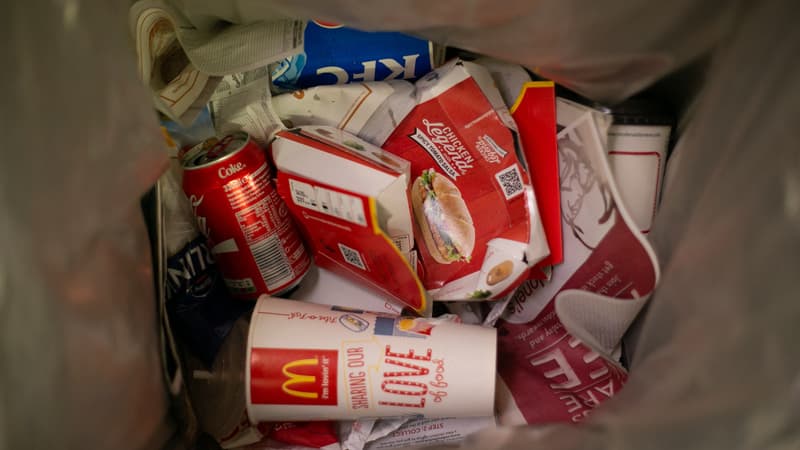A revolution is brewing in fast food restaurants. After France, disposable packaging could soon disappear from every table in Europe. The European Union is currently working on a revision of its regulations on packaging and packaging waste (PPWR). On the programme, among many other measures, is the prohibition of single-use containers for table service in hotels, cafeterias and restaurants on the Old Continent. Or the end of plastic cups, cardboard boxes and other paper bags that could live their last hours.
The measure affects the entire hotel industry but, in fact, it will be especially fast food that will be forced to change its habits. Because if disposable containers disappear, it is to make way for reusable tableware. Instead of throwing everything away at the end of the meal, it will be necessary to collect and wash the glasses, lids, plates, boxes and cutlery after being served to customers who consume on the spot. A strong conversion for a sector whose economic model is based on paper, plastic or cardboard packaging.
no date yet
The European Commission, in the original text presented in November 2022, proposed to ban them on January 1, 2030. But since then, the text has continued its course among the different EU institutions, passing in particular through the European Parliament in the origin of a large number of amendments. The compromise text proposed in mid-June by the Swedish Presidency of the Council of the European Union, that is to say the institution that brings together the interested ministers of the Member States, preferred to set a target of three years after the entry into force of the regulation.
And there is still nothing certain about his adoption date. The new Spanish Presidency of the Council of the EU has not included it among its main objectives and the next European elections in May 2024 are approaching. If it is not approved before the beginning of the year (by both the Parliament and the Council of the EU, which share legislative power), the part will be postponed to the next legislature. Especially since unanimity has not yet been achieved among all Member States: some countries, Italy in particular, are holding back.
Less ecological?
Meanwhile, the assault has already been carried out by the large fast food chains and manufacturers of paper and cardboard containers, which in recent months have multiplied forums in the press, contradictory studies and communication campaigns.
McDonald’s, at the head of the battalions, embarked on an intense lobby. The American fast food giant has joined forces with some of its competitors, including Yum! (Pizza Hut, KFC, Taco Bell), and specialized companies such as Huhtamaki, Schisler or Delfort, to make their arguments heard.
The latter point to the insufficiency of preparatory studies by the European Commission. Regarding the EPPA, a pan-European organization that brings together the main companies in the paper and cardboard packaging sector, we regret the poor ecological balance of reusable tableware, noting that washing these containers requires a lot of water, energy and detergents. The EPPA assures that it is not opposed to the new European regulation, but declares that it regrets the lack of dialogue and an ineffective “ideological debate”.
Carry
But beyond article 22, which eliminates disposable containers for on-site consumption, article 26 is also on the horizon. The latter sets targets for reusable containers for the sale of take-away food (80% of drinks and 40% of food by 2040 in the original text without changes), a much more complicated measure to implement. While fast food is likely to be in the media spotlight, it is a veritable packaging “big bang” that Europe is preparing for the next decade, much more ambitious than it seems.
Small exempt establishments
As in France, future European regulations provide that small restaurants will not be affected by the ban and will be able to continue serving disposable packaging to their customers. The draft revision of the PPWR Regulation mentions an exemption for micro-enterprises, that is, those that employ less than ten people and whose annual turnover does not exceed 2 million euros. The kebab or the pizzeria on the corner, for example, must pass between the drops.
Source: BFM TV


